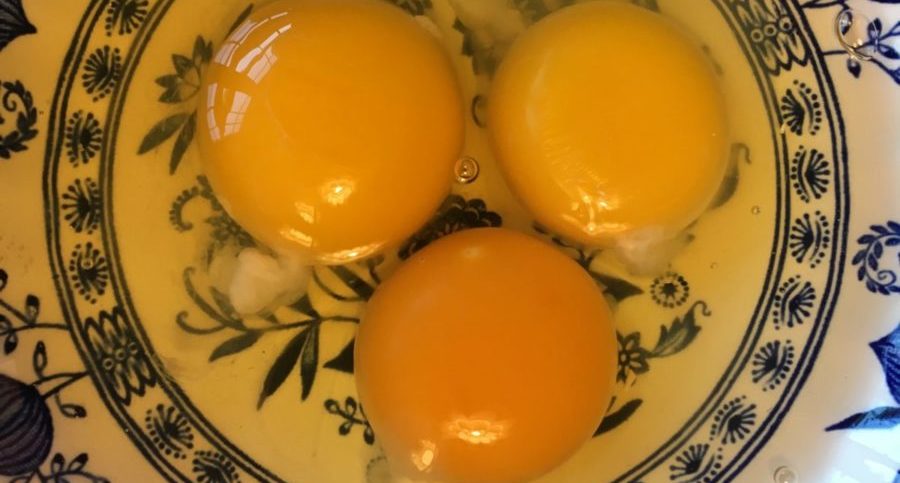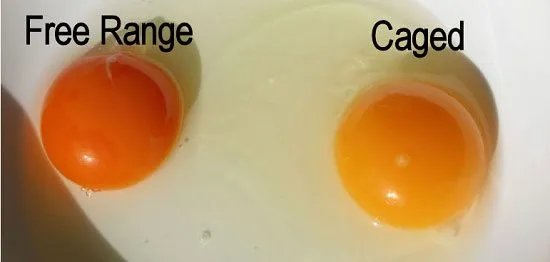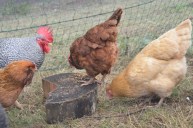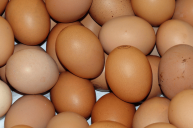Eggs from chickens with access to green plants and insects look a lot different than eggs from factory-raised chickens that never go outdoors.
Did you know that you can tell a pasture-raised egg from a factory-raised egg just by looking at it? You can generally tell whether an egg comes from a healthy chicken with access to the outdoors or a chicken that never sees the light of day by the color of the egg yolk.
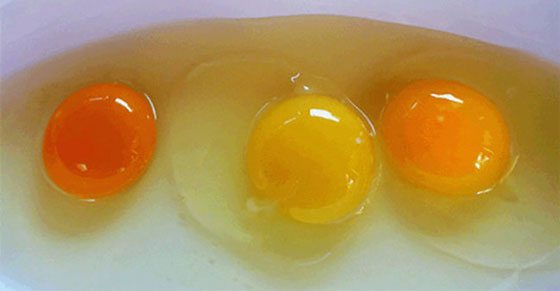
Photo: The Hook L to R: Dark orange yolk, yellow yolk, light orange yolk.
Darker Orange Egg Yolk = Healthy Pasture-Raised or Forage
A deep orange yolk means the egg is from pasture-raised hens. This color egg yolk indicates a well balanced and healthy chicken diet and an egg with excellent nutritional value.
Pasture-raised chickens have access to outdoor pasture, with fresh greens such as clover or grass, and plenty of insects to supplement their diet. Chickens are omnivores and eat worms, grubs, mealworms, beetles, grasshoppers, crickets, ticks, spiders and even mice, moles, and small snakes.
A healthy diet produces a healthy egg. If you let your backyard chickens free-range even a little bit, they are more likely to have darker yolks and better quality eggs.
READ MORE: 8 Tips for a Healthy Flock of Chickens
A dark orange or orange egg yolk likely has better nutritional qualities than a yellow egg yolk.
In fact, a Penn State study found that there are greater nutritional benefits from the eggs of pastured hens: higher levels of Vitamins A, E, and beneficial fatty acids (the good fats!) were seen in pastured hens when compared to caged hens raised in a factory setting.
Light Orange Yolk = Better Chicken Feed
Eggs with light orange yolks most likely come from chickens without as much access to the outdoors (or even no access at all). These chickens are caged indoors under artificial lighting, or roam around a dimly-lit or darkened barn with no windows.
Isn't it strange that a chicken that never goes outside lays eggs that are sold as "cage-free" or "free-range?" If these chickens have access to the outdoors it is extremely unlikely that their outdoor access area has any grass or plant life; it is more likely to be just dirt.
READ MORE: 7 Reasons to Let a Broody Hen Hatch Eggs
This surprisingly may also include some certified "organic" eggs, as producers may meet the outdoor access requirement for an organic label by giving chickens access to small outdoor pen with a cement floor or dirt ground (without a blade of grass in sight).
A light orange color yolk indicates chickens are fed a little bit better than a chicken producing an even lighter yellow yolk egg, but their diet still probably consists mostly of grains ("vegetarian-fed" on the box label) perhaps with some corn to give the yolk a bit more color.
Corn is not a great nutrient, but it does darken egg yolks a bit.
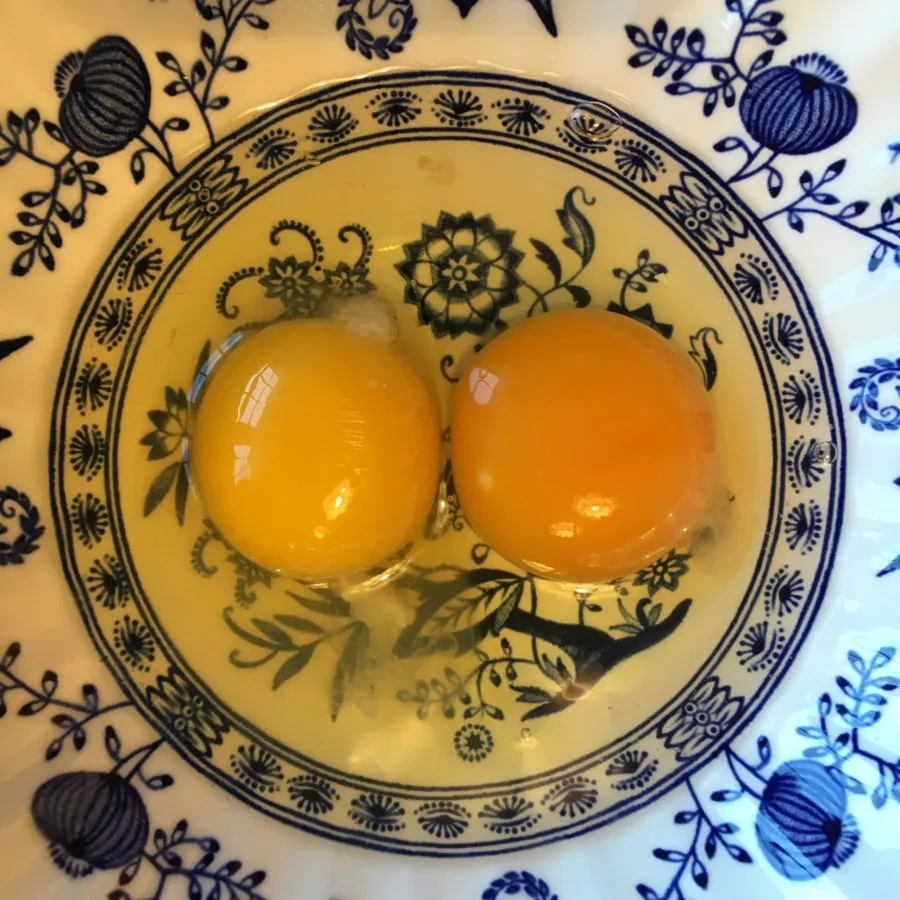
Yellow yolk on left from supermarket eggs, package labelled as from vegetarian-fed hens, orange yolk on right from free-range backyard hen. Photo: Daphne Cybele.
Yellow Egg Yolk = Factory Eggs or Unhealthy Diet
Birds that generally have no access to the outdoors or sunlight, are fed mainly grains ("vegetarian-fed" on the box label), and have never even seen grass or plant life lay eggs with yellow yolk.Yellow egg yolks indicate eggs from commercial egg factories.
The Penn State study referenced above found that eggs from these chickens have lower nutritional levels of Vitamins A, C, and omega fatty acids. This is because their diet is different than a pasture-raised egg (again, a healthy nutritious diet and a healthy chicken produces healthier and more nutritious eggs).
An ill chicken or one that does not forage may also have this type of pale yolk.
What does this mean? For the healthiest egg, you want to see "pasture-raised" on the label. When the label says cage-free, organic, and vegetarian-fed it does not mean they are the healthiest possible eggs!
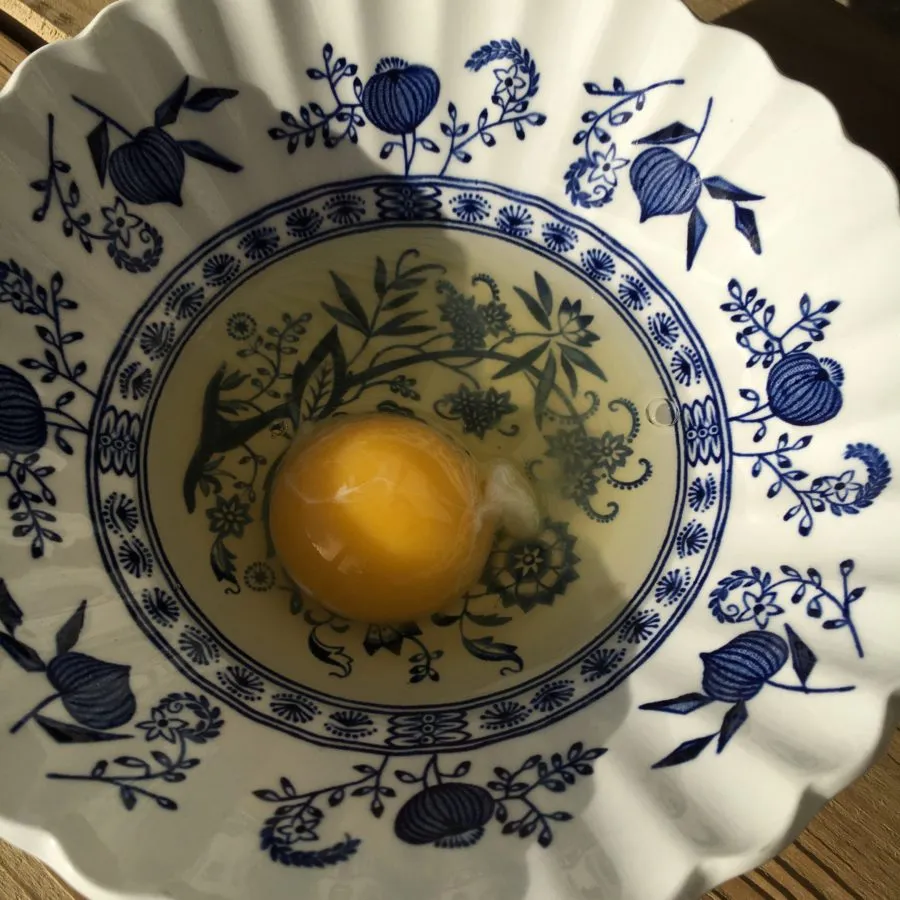
This is from a supermarket carton of eggs labeled vegetarian-fed hens. Photo: Daphne Cybele.
Nutritional Terminology (extra credit!)
Want to know the technical terms for what it is in plants and insects that give eggs that deep-orange yolk color? Try these twisty words on for size:
Xanthophylls - are compounds or natural pigments that give plants their color and contribute to the plant process of converting sunlight to energy.
Generally found in dark leafy greens, spinach, kale, beet greens, arugula, broccoli, squash, Brussels sprouts, peas, beans, peppers, corn, oranges, sweet potatoes
Beta-carotene - is a xanthophyll (see above).
Beta-carotene is in carrots, sweet potatoes, squash, spinach, kale, cantaloupe, apricots, red peppers, and yellow peppers.
Lutein - is another xanthophyll.
Lutein is in carrots, tomatoes, sweet corn, spinach, broccoli, kale, and (hopefully) eggs!
READ MORE: Quick Ideas for the Best DIY Chicken Treats
Omega-3 fatty acids - this is the healthy kind of fat, an essential and beneficial fatty acid found in the many types of seeds your chickens scrounge from the garden!
Also in romaine, purslane, arugula, spinach, cabbage, squash, flax seeds, sea kelp, canola, soybeans, rice, and dairy.
Is there a way for people to get those nutrients without having to eat so many leafy greens and vegetables? Funny you should ask... you might be able to by eating healthy orange-yolked eggs!
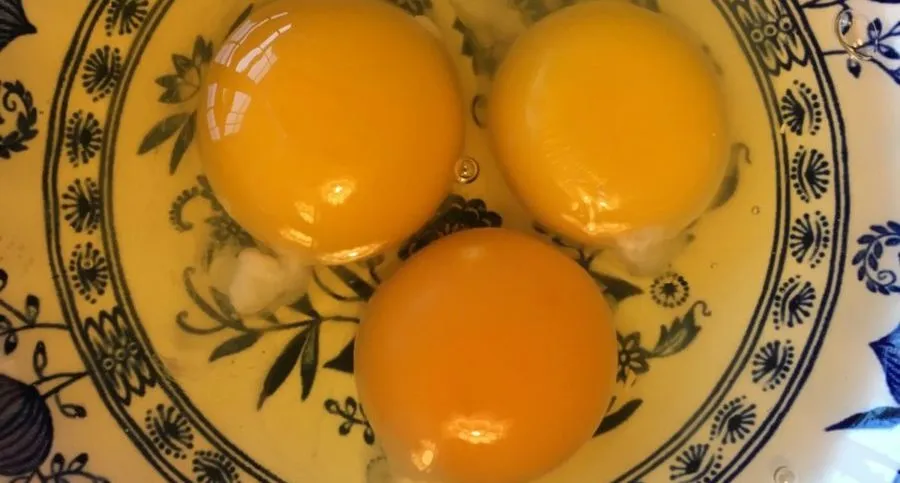
Clockwise from top left: egg yolk from "fortified vegetarian-fed hens," vegetarian-fed, and then free-range backyard flock at bottom. Photo: Daphne Cybele
Pasture-Raised Happy Healthy Eggs to All!
So if you want to be able to tell the difference between a healthy egg and a factory egg, one way you can probably rely on is the color of the yolk!
Do you buy your eggs at the supermarket? Look for "pasture-raised" on the label because it means the hens producing those eggs have access to the outdoors and lots of plant life and insects to produce the healthiest egg possible.
A healthy chicken diet makes for a healthy egg! Do not rely on terms like "organic," "free-range," "cage-free," or "vegetarian-fed" as indicators of a healthier egg.
What color are the yolks you scramble up? Let us know in the comments below!
WATCH NOW: How to Have the Best Tasting Eggs from Your Backyard Chickens
